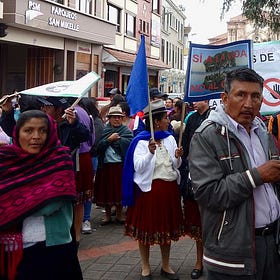Lawyers' association files complaint against Calgary police traffic ticket quota
Criminal Trial Lawyers' Association Policing Committee president cites an October 2022 Orchard exclusive in a letter to the chief.

The Criminal Trial Lawyers’ Association (CTLA) has filed a complaint against the Calgary Police Service’s (CPS) quota for traffic tickets, citing an exclusive Orchard report from October 2022.
Under Police Act section 42.1(3), any member of the public can submit complaints regarding a particular police policy.
A leaked memo from CPS Deputy Chief Chad Tawfik obtained by The Orchard instructed district patrol and traffic unit officers to respectively issue a “minimum average” of one ticket and 10 tickets per shift.
Tawfik told officers that increasing the volume of traffic tickets will help the CPS address a cumulative $23.4-million budget shortfall for 2021 and 2022.
Calgary police set traffic ticket quotas
The Calgary Police Service (CPS) has set quotas for the number of traffic tickets officers are expected to issue per shift, which are defended on the grounds of making up lost revenue caused by the pandemic, according to an internal memo obtained by
An April 18 letter from CTLA Policing Committee member Chris Wiebe, an Edmonton-based lawyer, to CPS Chief Mark Neufeld outlines three reasons the CTLA objects to the quota:
It pressures officers to issue traffic tickets in circumstances where they wouldn’t otherwise, pressuring them to consider budgetary factors unrelated to whether “there is sufficient evidence available to them to form a lawful basis for issuing a traffic ticket.”
Forcing officers to “spend time every shift meeting a traffic ticket quota” distracts them from “more important duties,” particularly those doing district patrols.
“Any perception that a community member’s ticket was issued because a CPS member needed to meet a quota risks undermining public faith in the fairness and impartiality of the justice system.”
Wiebe told The Orchard in an interview that the CTLA, as an organization “committed to advocating against police misconduct or against injustice in the criminal justice system, generally,” has “serious concerns about [this] policy.”
This isn’t the first time the CPS has forced its officers to hand out a specific number of traffic tickets. In November 2002, the Calgary Police Association launched a public awareness campaign after 10 officers were charged with insubordination for failing to conform to an unwritten policy that they hand out at least 20 traffic tickets a month.
By the next year, the policy was abandoned and the insubordination charges were withdrawn.
This time is a bit different, since the policy is actually in writing and requires officers to issue an average number of tickets per shift, rather than a hard number per month.
It’s unclear whether any officers have been charged for violating it and the police association has been totally silent about the policy, leading to a near-total absence of media coverage of a policy that almost certainly targets racialized motorists disproportionately.
The Orchard reached out to the Calgary Police Association for comment. This piece will be updated in the event of a response.
Back in October 2022, the CPS said Tawfik’s instruction for officers to issue a “minimum average” of tickets wasn’t a quota at all.
The deputy chief’s memo was merely “intended to reinforce our commitment to traffic safety and encourage members to conduct traffic enforcement as a part of their regular duties each and every shift [and] to exercise their discretion relative to education, awareness or enforcement on each traffic stop, with a focus on altering future driving behaviour.”
But that’s not what the memo said at all, Wiebe pointed out.
“If the CPS wants to remind its officers to enforce municipal and provincial laws in the traffic safety context and exercise their discretion in doing so, it could simply remind them to do so,” he said. “This is a policy implementing a traffic ticket quota.”
The next step in the process is for the CPS Professional Standards Section to investigate the complaint, but the final decision on the complaint’s merits rests with the chief.
Policy complaints are far less frequent than complaints against specific officers. According to Professional Standards’ 2022 report to the Calgary Police Commission (CPC), the most recent year for which data is available, just 4% of concluded investigations into minor complaints concerned CPS policies.
“We found in past experiences that, generally, these complaints are dismissed,” Wiebe said.
If the chief dismisses the CTLA complaint, the only avenue of appeal is the CPC, which could be problematic. In 2022, the commission told The Orchard it has no issue with traffic ticket quotas.
“It is up to the Service leadership to determine how best to ensure that the appropriate level of traffic enforcement is occurring,” a commission spokesperson said.
“When enforcement activities are lower than expected, it both shows that driving infractions are not being addressed as much as desired and does create a shortfall in the police budget.”
Wiebe said this position “reflects an unfortunate misunderstanding of the commission's role as supposedly the oversight body of the police service.”
According to the CPC’s website, it has the responsibility “to establish policies providing for efficient and effective policing [and] to issue instructions as necessary to the Chief in regards to those policies.”
“For the commission to abdicate its responsibility and just defer to the service leadership is concerning and reflects an attitude shared by other police commissioners in the province of, unfortunately, giving too much deference to police service leadership,” Wiebe said.
This piece has been updated to clarify Chris Wiebe’s position as a member of the CTLA Policing Committee, not its president.
Rules-based International Order Watch
The Canadian government has no plans to renege on its free trade talks with Ecuador, despite the Ecuadorian government’s raid on its Mexican embassy to arrest an opposition politician who sought asylum, the Hill Times reports.
On April 6, Ecuadorian cops entered the Mexican embassy to arrest Jorge Glas, who served as vice president from 2013 to 2017 and has been convicted of corruption twice.
The following week, Global Affairs Canada (GAC) characterized the “unauthorized entry” into the Mexican consulate as a “clear violation” of the 1961 Vienna Convention on Diplomatic Relations.
Mexico, which ended diplomatic relations with Ecuador in response to the raid, is planning on taking Ecuador to the International Court of Justice for invading its embassy.
Negotiations for a Canada-Ecuador free trade agreement will nonetheless begin April 29, which a GAC spokesperson touted as “an occasion to strengthen the rule of law and underscore the importance of honouring legal commitments.”
Indigenous Ecuadorians warn against Canada-Ecuador free trade pact
In December 2023, the Canadian government announced its intention to pursue a free trade agreement (FTA) with Ecuador, which would allow Canadian mining companies heightened access to the Latin American nation’s abunda…
Canadian mining interests had hoped to secure an investor-state dispute settlement (ISDS) clause in an agreement with Ecuador, as did the right-wing Ecuadorian government. ISDS allows companies to take governments to a secretive international tribunal to resolve disputes that impact their bottom line.
But that’s unlikely to happen now, since 60% of Ecuadorians voted against approving ISDS measures for future trade agreements in a national referendum.
In other news …
Alberta’s police watchdog has cleared Edmonton cops of wrongdoing two weeks after an unidentified man who the police chased with helicopter assistance for biking without appropriate lighting slipped into the North Saskatchewan River and presumably drowned, although his body hasn’t been found, an incident which friend of The Orchard Euan Thomson notes “highlights the carelessness with which force is deployed by police for the pursuit of people who pose little or no threat to the public.”
The acquittal of Usman Zameer for killing a plainclothes Toronto police officer with his car while escaping what he thought was a robbery represents a rare instance of police being put on the defensive, Desmond Cole writes.
In response to a student-led protest encampment against Columbia University’s complicity in Israel’s ceaseless attacks on Gaza, Barnard College has suspended 53 students and evicted them from student housing — all in the name of student safety, of course.
The U.K. House of Lords has acquiesced to Prime Minister Rishi Sunak’s legislation to deport Middle Eastern asylum seekers to Rwanda, which has been trashed by Amnesty International, Doctors Without Borders, and UN special rapporteurs on human trafficking, human rights and torture.




